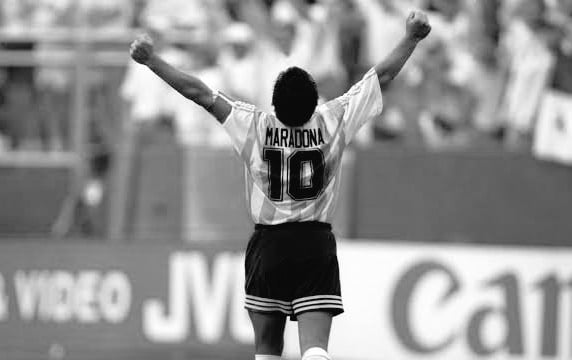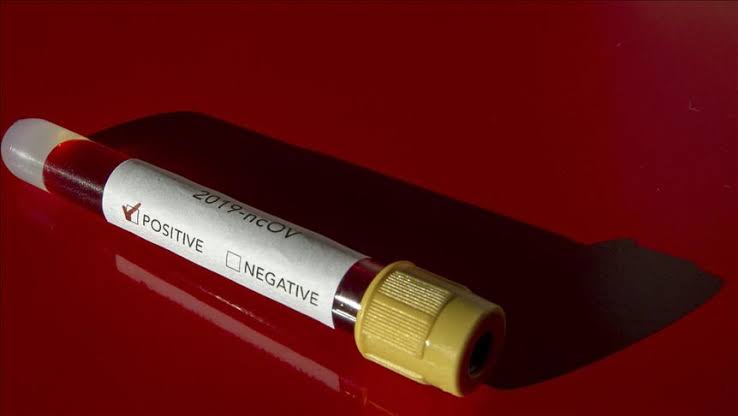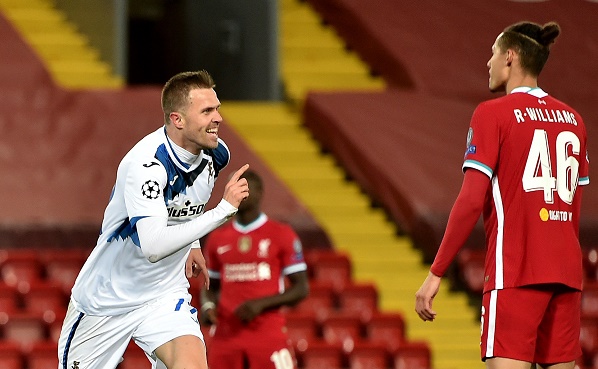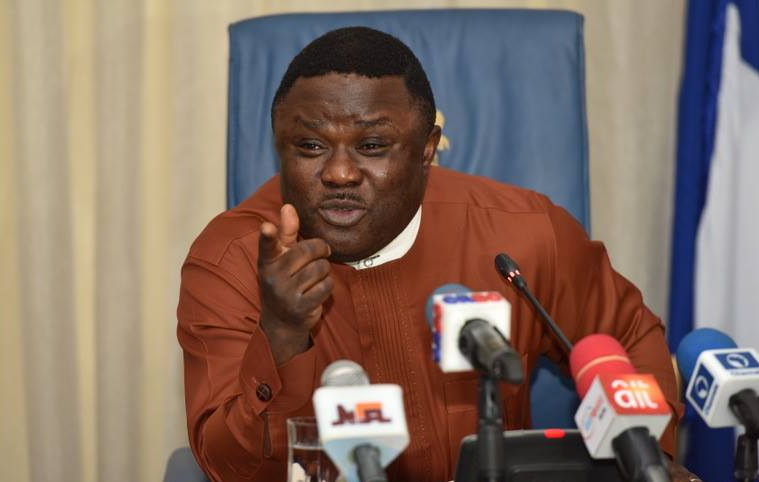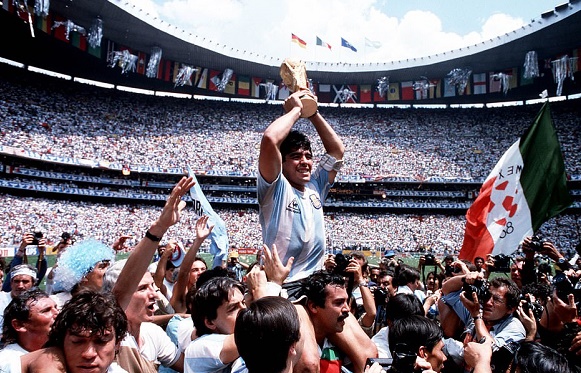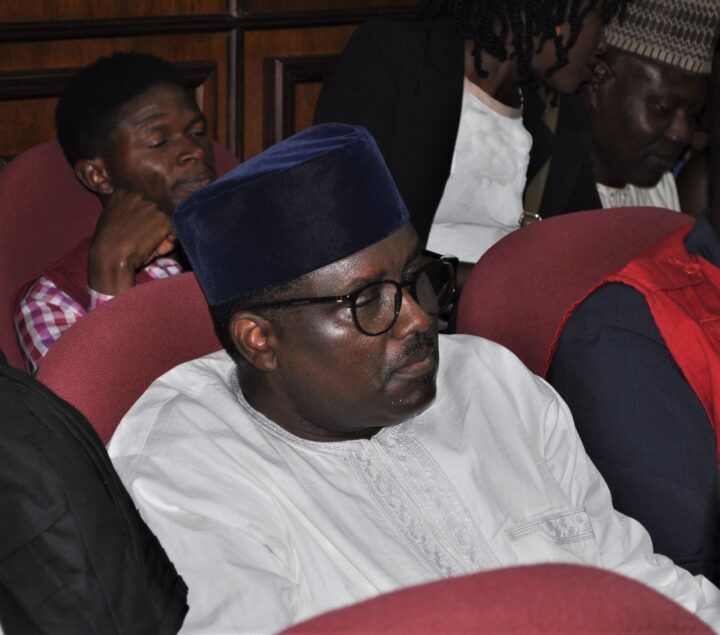Hand of God, cocaine battles... high and low points of Maradona's career
No football star exemplifies the talent, flair, guile and free-spiritedness of Diego Armando Maradona — the self-styled poster boy for the present-day flamboyant footballers. Even Neymar Jr. would have been an apprentice when Maradona’s swagger was in full force.
But it was not all glory days for El Pibe de Oro, the golden boy who dazzled the world for both clubs and country and was described as one of the most divisive characters of all time. Maradona, who broke the world record transfer at both Barcelona and Napoli, had a golden career which was a mixed bag of joy and despair — some of which manage to leave millions of fans missing out on his storied playing career after retirement.
TheCable examines two key career moments that captured the genius and craziness of Maradona.
England will never forgive Maradona for his ‘hand of God’ goal at Mexico 1986
Advertisement
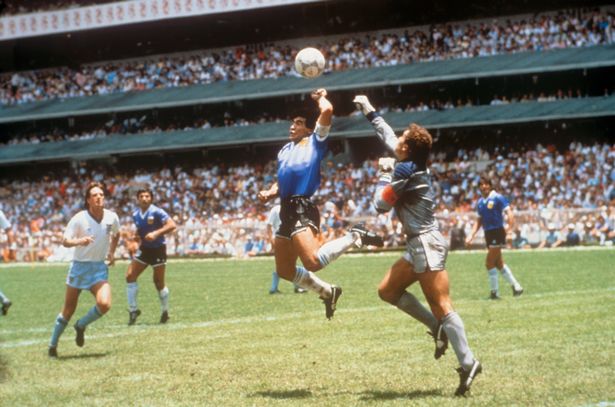
The stage for the FIFA World Cup that year was the immortal Aztec stadium in Mexico city and Maradona cemented his greatness on both sides of the scale in the quarter-final encounter against an England team attempting to take the game’s biggest prize home. Maradona, who was captain of Argentina, tricked his way to the first goal before scoring the second one — which was dubbed goal of the century — in a 2-1 win for Argentina.
At 25-year-old and still breaking the world record transfer fee for a second time — at that time, Maradona was all set to lead Argentina to World Cup glory but found formidable opposition in England, especially Peter Shilton, who was arguably the best goalkeeper of that era. Without eagle-eyed linesmen or video assistant referee (VAR) system, Maradona stole in ahead of Shiton to punch in a harshly cleared high ball. While the enigma jumped around in celebration, England players protested in vain to Ali Bin Nasser, the match official.
Advertisement
After the match, an unapologetic Maradona stated that the goal was scored “a little with his head, and a little with the hand of God”, and after then, the hand of god phrase was birthed. Speaking to The Sun UK in 2019, 33 years later, el Diego remained defiant, stating that his “hand of God” goal against England was a “symbolic revenge” for the Falklands War.
The encounter came after the 1982 war between the two nations, in which 649 Argentinians and 255 British troops died during three months of fighting.
“I knew it was my hand. It wasn’t my plan but the action happened so fast that the linesman didn’t see me putting my hand in. The referee looked at me and he said: ‘Goal.’ It was a nice feeling like some sort of symbolic revenge against the English,” he had said.
Advertisement
Not yet satisfied with the “hand of God”, Maradona went on to score the goal of the century for 2-0. The not-so-tall playmaker picked up the ball in his own half and after 12 touches over 52 metres and 9 seconds, the stadium and a nation was agog, and the world stood up in salute. Victor Hugo Morales, the Uruguayan Spanish commentator for the match, had described it as the greatest solo “goal of all time” and FIFA duly crowned it the goal of the century.
Drug addiction, health problems, and an ignominious end to playing career
After elevating to a god-like status at Napoli for leading the unfancied Naples team to a first-ever Serie A title, Maradona’s career began to experience issues even though his brilliance remained evergreen.
Advertisement
The former Boca Juniors man was reportedly deep in romance with the mafias in Italy and also dived into alcohol and cocaine abuse — tested positive for the substance in March 1991 — and served a 15-month suspension. During that period, he was also arrested in Buenos Aires and charged with possession and distribution of cocaine.
A more robust Maradona continued his wrongdoings going into the 1994 World Cup in the USA where he would again test positive for cocaine after helping Argentina to a 2-1 win over the supremely talented Super Eagles of Nigeria team.
Advertisement
Maradona had been called upon to save Argentina after seeing out his doping ban. After playing just two games, he was sent home after testing positive for ephedrine. Another 15-month ban followed and although he resurfaced in his homeland afterwards with Boca Juniors, a third drug test failure in 1997 ended his illustrious career engraved in the heart of football watchers.
At 36, a controversially illustrious career came to an end with tears as an emotional Diego wept while announcing his exit from the game during a radio interview.
Advertisement
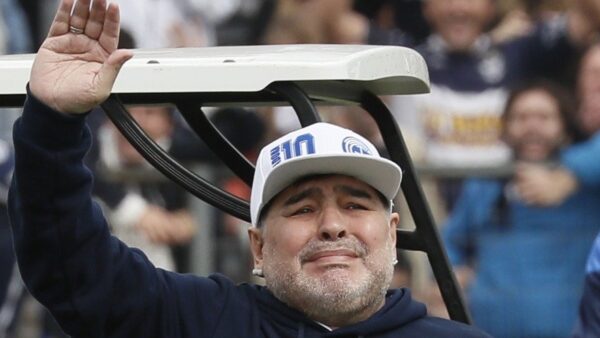
“This [comeback] has been horrible, I give up. I had begun to believe again that the surname Maradona could return to where it should be,″ he had said.
Advertisement
After hanging up his boots in 1997, Maradona added weight to the point of being obese. In 2005, he underwent gastric bypass surgery after which he was treated for hepatitis and alcohol-related illness at a hospital in Buenos Aires two years later.
Few weeks before he died from cardiac arrest in 2020, the former Napoli and Barcelona star had undergone a major operation to remove a blood clot from his brain.
Whether you love, hate, adore, despise him, Maradona remained one of the greatest footballers to ever play the game of football.
Rest on Diego Armando Maradona!
Add a comment
